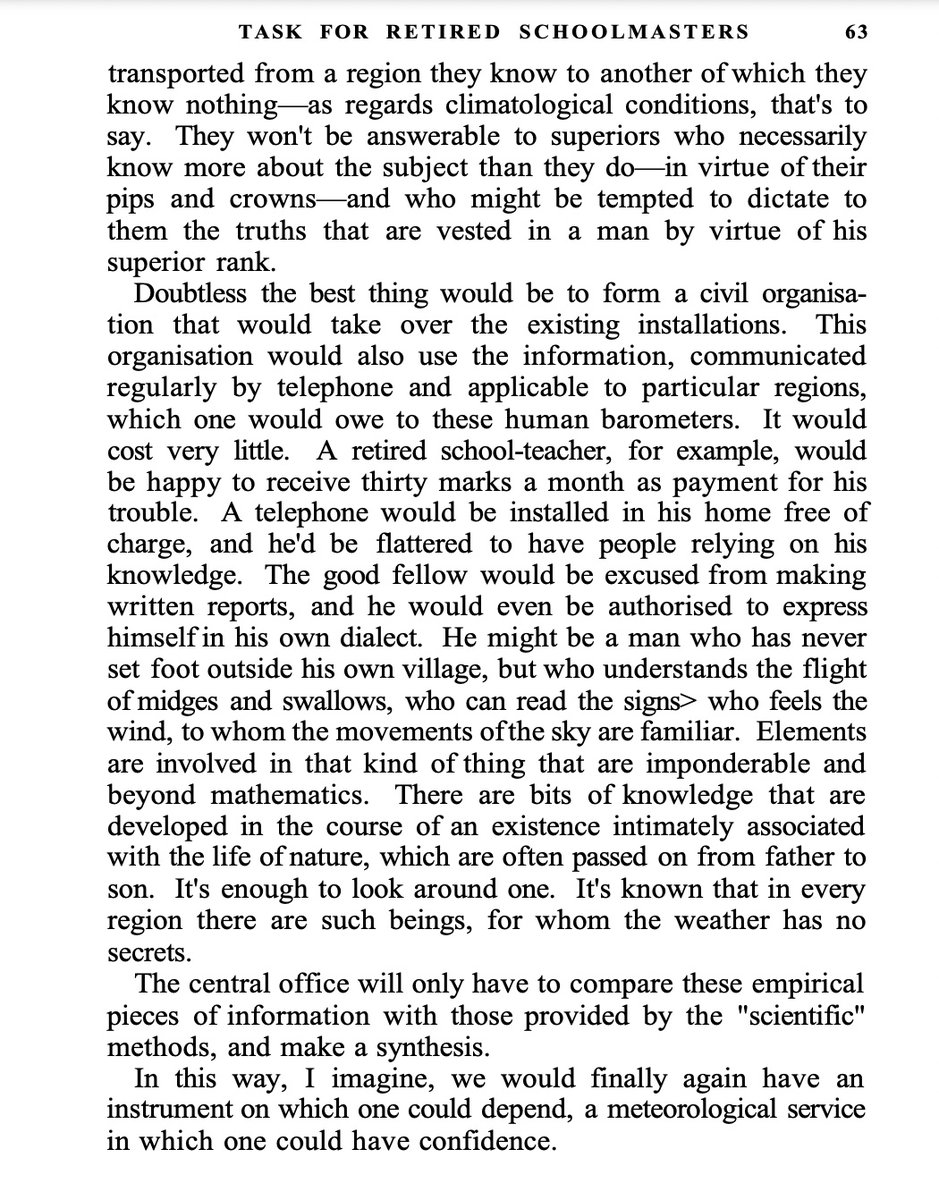
As the Siberian cold spreads, I'm thinking back to how Russia, more than most countries, has weaponized winter - almost always in defense. So much so that foes spoke of "General Winter" as a leader of Russian forces. 

Now, by destroying so much of Ukraine's energy infrastructure in his invasion, Putin is using winter cold as an offensive weapon. #PutinWarCrimes
https://twitter.com/_/status/1604049886940483585
One chapter in the book I wrote with @LisaMechaley of 100 moments in humanity's weather and climate journey explored weather as a weapon, and Russia is the case study. Here's the chapter:
https://twitter.com/_/status/1396673926248415232
Weather has often played an unpredictable role in the outcome of wars, as when a change in the winds helped Britain’s fleet defeat the more powerful Spanish Armada in 1588. But sometimes its importance, even when highly predictable, has been underappreciated.
This has been especially true when it comes to invasions of Russia, so famed for notorious cold and paralyzing soggy thaws that historians of war have written of “General Winter” and “General Mud” as battlefield foes in that country.
Whether in Sweden’s failed 1708 invasion during the Great Northern War or Napoleon’s try in 1812, the cold was generally not the only, or even the decisive, factor. But it was always there, killing, crippling, and debilitating troops. 

In Germany’s attempt to crush Russia in 1941, Hitler’s overconfidence led to a delayed approach to Moscow, allowing winter to join the fray.
In his 2011 book, The Storm of War, historian Andrew Roberts recalled how, on December 20, 1941, Minister of Propaganda Joseph Goebbels appealed to German citizens for warm clothing to send to the front:
https://twitter.com/_/status/1545189260558569472
“Those at home will not deserve a single peaceful hour if even one soldier is exposed to the rigors of winter without adequate clothing.”
It was too little, too late.
It was too little, too late.
Hitler’s dismissive attitude toward his weather forecasters could well have contributed to the disastrous setback. In a monologue on meteorology recorded late on the night of October 14, 1941, he made his views clear:
"One can’t put any trust in the [meteorological service] forecasts....Weather prediction is not a science that can be learnt mechanically.
https://twitter.com/capitalweather/status/991004290209800192
"What we need are men gifted with a sixth sense, who live in nature and with nature—whether or not they know anything about isotherms and isobars."
In his account, Roberts noted that Hitler’s library contained many books on Napoleon’s campaigns.
In his account, Roberts noted that Hitler’s library contained many books on Napoleon’s campaigns.

With some irony, he added, “Yet he did not learn the most obvious lesson from his predecessor.” rbth.com/history/329676…
Addendum: The full text of Hitler's critique of modern meteorology is in a chilling transcription of a batch of recorded diatribes from October 1941. ia800203.us.archive.org/24/items/Hitle… 



@threadreaderapp unroll
• • •
Missing some Tweet in this thread? You can try to
force a refresh










